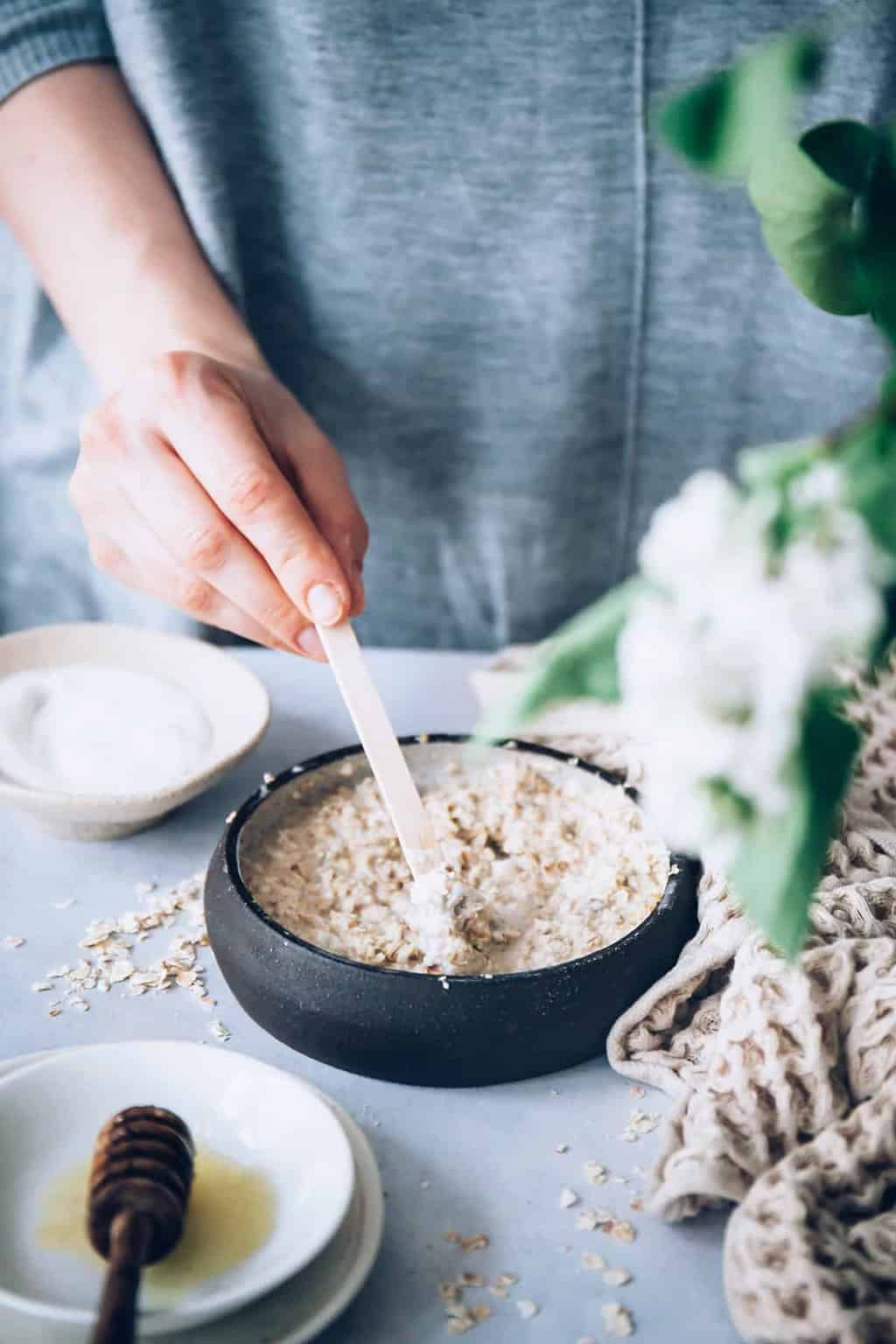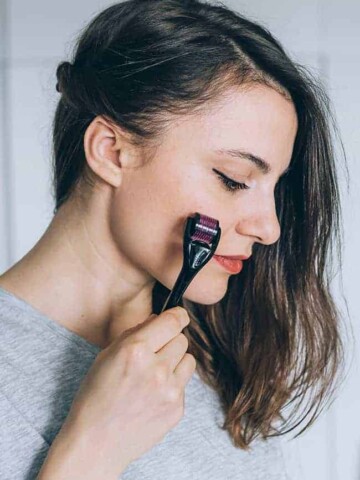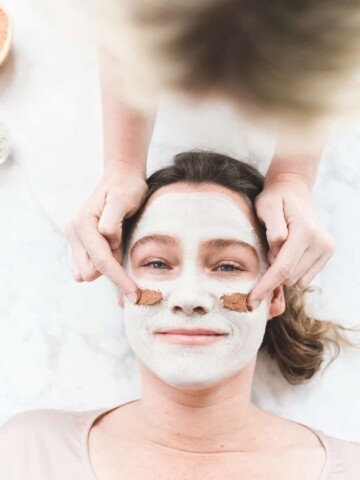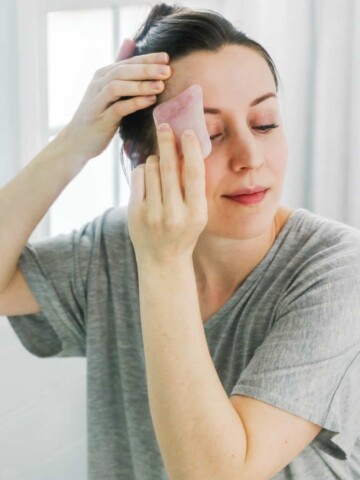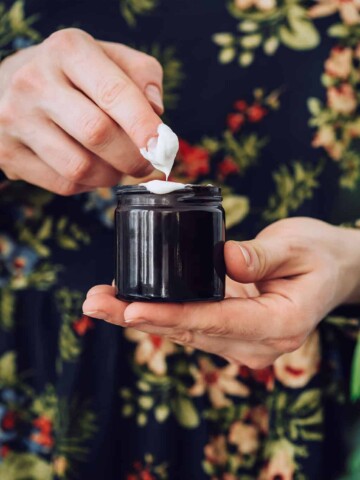The term “sensitive skin” has sort of become a catch-all phrase many of us use for a myriad of different skin concerns, from general irritation to dryness and even specific conditions such as eczema and rosacea. But overusing the word “sensitive” to describe many of the skin conditions we experience isn’t always accurate, notes Craig A. Kraffert, MD, a dermatologist in Redding, California. “Everyone has sensitive skin to a certain point—and sensitive can mean different things for different people, so it tends to be an overused adjective.”
While dermatologists do not acknowledge sensitivity as an actual skin condition, they do treat patients with sensitive skin differently, often by recommending a simpler approach. This might require a change in the use of certain household products, for example, opting for moisturizers, soaps, detergents, and cosmetics formulated without harsh chemicals, scents, fragrances, or dyes.
What causes sensitive skin?
Although the exact etiology of sensitive skin is unknown, people with sensitive skin types have impaired epidermal barriers, making them more prone to irritation [source], especially during the winter months.
Dry, sensitive skin can begin within the first few months of life and is thought to be triggered by genetics, environmental factors, and/or an impaired immune system response. Those suffering from atopic dermatitis or eczema, common skin conditions causing dry, sensitive, itchy skin, are thought to have a genetic mutation, making them more susceptible to sensitive skin and rashes when they come in contact with irritants [source].
6 Secrets to Caring for Your Sensitive Skin
Whether you’ve been battling sensitive skin since you were a child or only recently started experiencing irritation, the first step toward treating it is to change your skincare routine. Here are some dermatologist-approved solutions that can help.
1. Discover the root of the problem.
When it comes to understanding your skin and how best to manage it if you’re prone to sensitivity, Erum Ilyas, MD, a dermatologist at Montgomery Dermatology, recommends first making an appointment with your dermatologist to discover the culprit.
“I cannot tell you how often the trigger can be pinpointed and avoided when it comes to allergic and irritant contact dermatitis,” she says. “Rosacea or seborrheic can be effectively managed separately, allowing you to resume a skincare routine, and precancerous spots can be treated directly with liquid nitrogen or field therapy with a prescription cream or photodynamic therapy."
2. Always apply sunscreen.
Many individuals suffering from sensitive skin are afraid to use sunscreen for fear it might make their irritation even worse. But as long as you’re using a daily mineral (not chemical) sunscreen, your skin should be fine—and protected.
“The chemical ingredients will be harsher; therefore, they can irritate sensitive skin,” warns Alan J. Parks, MD, a dermatologist and founder of Derm Warehouse. “Mineral sunscreen should not cause irritation for those with sensitive skin.” He suggests Nia 24 Sun Damage Prevention 100% Mineral Sunscreen.
3. Use mild, gentle, and unscented cleansers.
Sensitive skin types become less irritated when using cleansers that are free of harsh chemicals such as sodium lauryl sulfate, which is found in most soaps and scrubs. Though it helps the soap lather, it can be very irritating. Using harsh soaps is the #1 cause of stripping the skin of its natural protective barrier and making you more susceptible to allergens and irritants.
She recommends CeraVe Hydrating Cleanser, or Neutrogena Hydroboost Hydrating Cleansing Gel, Cetaphil Gentle Skin Cleanser, and Aveeno Positively Radiant Brightening Cleanser. For DIY fans, try this Healing Calamine Soap.
4. Moisturize at least twice daily.
When applying your moisturizer, which should be done both morning and night, make sure your skin is damp so that it will lock in moisture and hydrate more effectively. If your skin is acne-prone, consider using a non-comedogenic product moisturizer like CeraVe PM Face Moisturizing Lotion.
These products are great for people who have combination skin or who are using acne medications that cause dryness and sensitive skin. Especially during the winter months, those who suffer with sensitive, dry skin will respond better to moisturizing with ointments like CeraVe Healing Ointment compared to other over-the-counter lotions or creams.
The key ingredient to include is ceramides, which are a very important component of the human skin barrier [source]. Ceramides are often lacking in the skin barrier of people with dry, sensitive skin, so using products containing them will help restore the skin barrier effectively.
5. Use a powdered exfoliator.
“In many cases, powdered exfoliators are gentler on skin than alpha-hydroxy acid exfoliators, depending on the ingredient base and preparation the product uses as its exfoliant,” explains Dr. Kraffert.
“Today, some leading exfoliant cleansers rely on rice seed for physical exfoliation. However, after researching formulations with multiple different plant seed blends and preparation methods in our Korean laboratory, we discovered that for physical exfoliation of the skin, corn seed-based formulas supplemented by wheat and rice bran provide the gentlest, most effective, and most consistent clinical results,” he says.
He recommends powdered cleansers that rely primarily on corn seed, such as Amarte Daily ExfoliPowder, for sensitive skin as the exfoliation will not inflame the skin.
6. Shower and bathe in lukewarm water.
Hot water can exacerbate excessively dry skin, so it’s a good idea to limit bathing in lukewarm water to no longer than 10 minutes. After bathing, avoid aggressively drying the skin with a towel—instead, gently pat the skin dry. For patients who suffer from not only dry skin but also itchy skin, oatmeal baths can be very helpful as oats have been shown to have direct anti-inflammatory properties [source], and they give genes that regulate the skin barrier a boost [source].
In need of more specific steps for a routine? We’ve got you covered...
Daily Skincare Routine for Sensitive Skin
Step 1 - Cleanse Morning & Night
The hesitancy to not exfoliate or deep clean sensitive skin can be common. Often the idea of a thorough cleansing triggers thoughts of redness and inflammation. But that doesn’t have to be the case.
There are gentle clay cleansers that break down dirt and sebum but are also gentle for the most sensitive skin. Bentonite clay is both common and easily customizable, and this bentonite clay cleanser DIY adds chamomile powder to enhance the soothing factor while still getting your skin clean.
If you are looking for retail product recommendations, check out Tatcha’s Deep Cleanse Exfoliating Cleanser or Biossance’s Squalane + Amino Aloe Gentle Cleanser.
Step 2 - Treat Daily
Treating sensitive skin might be the most important step in your daily routine. This step can address the issue plaguing you most and give you the most effective results, whether that be reducing redness or minimizing dryness. A hyaluronic acid serum is an excellent rejuvenator that can both soothe and hydrate dry and/or irritated skin [source], and this DIY recipe is one you can make yourself.
However, if you’re looking to purchase a serum instead, look into Dr. Dennis Gross Hyaluronic Marine Serum or Osea’s Atmosphere Protection Cream.
Step 3 - Protect Daily
Sunscreen is very important for all skin types, including sensitive ones. But the type of sunscreen is even more important.
Mineral sunscreens are less irritating, safer, and less damaging to both the environment and body [source]. Look for sunscreens without chemicals; the active ingredients should be titanium dioxide and/or zinc oxide.
If you would like a bit of tint to your sunscreen to avoid wearing foundation or makeup, I am a huge fan of Ilia’s Super Serum Skin Tint. And if sheer is more your type, try Drunk Elephant’s Umbra Sheer.
Step 4 - Moisturize Nightly
At night, it’s important to hydrate well, and we do this through moisturizers and facial oils. Don’t miss this important step in your routine! Try to customize your own facial oil, targeting your sensitive skin first and foremost.
If you prefer to purchase retail, check out Drunk Elephant’s Marula Oil or Sunday Riley’s Juno Superfood Oil.
This post was medically reviewed by Dr. Jennifer Haley, a board-certified dermatologist with extensive experience in medical, cosmetic, and surgical dermatology. Learn more about Hello Glow’s medical reviewers here. As always, this is not personal medical advice, and we recommend that you talk with your doctor.
51

